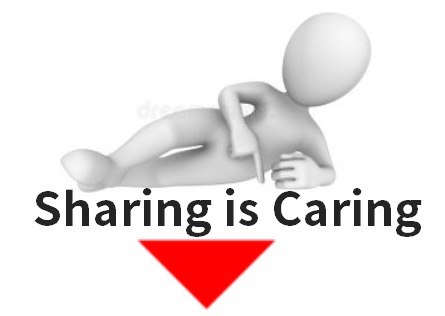
Top 20 SAP BASIS Interview Questions and Answers
With the increasing demand of SAP products throughout the globe, SAP is venturing into companies of all types. Therefore, the demand for SAP specialists is extremely high, presently. Learn and get certification in SAP HANA from Omni Academy SAP HANA training and excel in your career. We have prepared a set of top 20 most frequently asked interview questions on SAP BASIS.
Top 20 SAP BASIS Interview Questions and Answers
1. What is SAP BASIS?
SAP BASIS or Business Application Software Integrated Solution or SAP NetWeaver is a set of programs and tools that serve as an interface with databases, operating systems, communication protocols, and SAP business applications including SAP FI, SAP CO, and SAP MM, among others. SAP BASIS enables SAP business applications to run and communicate with each other across disparate operating systems and databases. BASIS supports all SAP applications and allows users to monitor both SAP ABAP and Java Stack from one platform.
2. Differentiate between Developer Trace, System Log, and System Trace.
| Developer Trace | System Log | System Trace |
| When problems arise, Developer Trace stores technical information about those errors. | System Log is referred to have a look at recent logs for application server and CI. | System Trace is used to record internal activities that pertain to SAP systems. This helps identify internal problems. |
3. What are the different standard protocols and formats that SAP BASIS supports?
SAP BASIS supports a range of standard protocols. They are:
- HTTP
- SMTP
- XML
- SOAP
- SSO
- WEBDAV
- WSDL
- WMLSSO
- SSL
- 509
On top of that, SAP BASIS also supports the Unicode format.
4. List the functionalities of SAP BASIS.
- Tools for system monitoring and administration
- Server-side scripting in SAP ABAP and JavaScript
- Business Server Pages for building online stores and portals
- Utilities for database monitoring and administration
- Resource management
- Transfer Modifications for improved accuracy
- Client–Server architecture and configuration
- GUI designing for customizing the presentation layer in SAP R/3 architecture
5. What are the responsibilities of an SAP BASIS Consultant?
- SAP application server monitoring and system log analysis
- Performance tuning and improvement
- Database maintenance and restoration in case of technical disasters
- Solution Manager installations
- Managing SAP R/3 and NetWeaver
- Installing Transport Management Systems
- Creating users, assigning roles, and locking and unlocking users
- Background job scheduling and job monitoring
- Applying support patches and installing add-ons
6. Why are OPS$ user services important?
There are two types of OPS$ user services:
- OPS$adm
- OPS$SAP
These user services are important as they are created in the SAP system to connect and communicate with databases internally.
7. Define RFC. What are the types of RFC?
RFC or Remote Function Call is a mechanism which is used to communicate and exchange information between SAP systems. There are four types of RFCs. They are:
- Synchronous RFC (sRFC): This RFC executes the system call only when all involved systems are available.
- Asynchronous RFC (aRFC): This RFC executes the invoked function modules only once in the RFC server.
- Transactional RFC (tRFC): This is similar to asynchronous RFC, but in this case a transaction ID is involved to send multiple requests in case of errors.
- Queued RFC (qRFC): This is an extension of tRFC and is used to serialize tRFC calls in a queue.
These are described in detail on SAP community.
8. What are the steps to perform SAP Export from tables in the OS level?
To export from tables in the OS level, users need to follow certain steps using the R3trans utility which is implicitly available in SAP.
- Fetch the list of tables to be exported
- Check if the target directory has the required disk space
- Create specific control files for R3trans. These files will be used for exporting purposes
9. Differentiate between Support Package, Kernel, and SAP Note.
| Support Package | Kernel | SAP Note |
| Support Packages are defined as a bunch of corrections that pertain to transaction ‘SPAM’. | Kernels contain executable files for executing applications when needed. | SAP Notes are implemented to remove errors in single transactions and independent programs. |
10. Can we install SAP patches when other users are online?
No, we cannot install SAP patches when other users are online. This is because Support Manager won’t be able to update the patch in the system. Rather, the patch will be terminated. It is therefore advisable to apply SAP patches on a system when no users have logged in to it.
11. What is the use of personalized and parameter tabs in users’ master record?
Parameter tab: Allows administrators to assign T-codes to subordinates
Personalized tab: Required for RFC communication between systems and personal user information
12. Who are reference users? Also talk about service users.
Reference users: Reference users provide one user authorization to other users in case of emergency. GUI login is not possible for reference users.
Service users: Service users are anonymous users. Administrators change passwords for service users. However, it is possible for service users to login to the system multiple times.
13. How to define logon groups?
Logon groups can be defined by using the transaction code ‘smlg’. Users must create logon groups in the first place and then assign instances to those logon groups.
14. Which functional modules are used in sequence in BDC?
There are three functional modules that can be used in sequence in BDC to enable the transfer of data within SAP systems. These modules are:
- BDC_OPEN_GROUP: This module is used to specify the name of the client, sessions, and username.
- BDC_INSERT: This module is used to ingest data for transactions.
- BDC_CLOSE_GROUP: This module is used to terminate the batch input session.
15. What is OK Code?
The OK code is used in SAP programs to execute functions or modules. OK codes improve execution time and help maintain the modularity of a program.
16. What is the meaning of Business KPIs?
Business KPIs or Key Performance Indicators indicate the performance of companies at a strategic level. These indicators help businesses steer their course of action to the right track by which they can generate maximum profits.
17. Define SAPS.
SAPS or SAP Application Performance Standards are independent hardware units that indicate or describe the performance of a system configuration in any SAP environment.
18. How can you find out if a system is Unicode or Non-unicode?
Users can use the transaction code ‘SM51’ to check if a system is Unicode or Non-unicode. Upon opening the application, users can click on the release notes button in the application tool bar to find information about a system being Unicode or Non-unicode.
19. What are the types of transport requests?
Basically, there are four types of transport requests in SAP. They are:
- Customizing Request
- Workbench Request
- Transport of Copies
- Relocation
20. What is supplementation language?
By default, SAP systems are installed in either English or German, though SAP systems are used throughout the world. Therefore, at times it becomes necessary to translate SAP systems to regional languages. But due to language gaps, the translation isn’t seamless all the time. To fill this language gap, a supplementation language is used.
Check out the Omni Academy SAP HANA Course to get a head start in your SAP career!
Popular ERP Courses
SAP Training – ABAP Technical Consultant
SAP MM – Material Management – SupplyChain
SAP Crystal Reports Development
SAP SuccessFactor – Human Resource Management
Oracle Techno Functional Consultant – Oracle Apps R12
Oracle ERP R12 Supplychain Management
Oracle E-Business Suite R12 Applications DBA
Oracle Fusion Financials Cloud – 1Z0-408






Leave a Reply